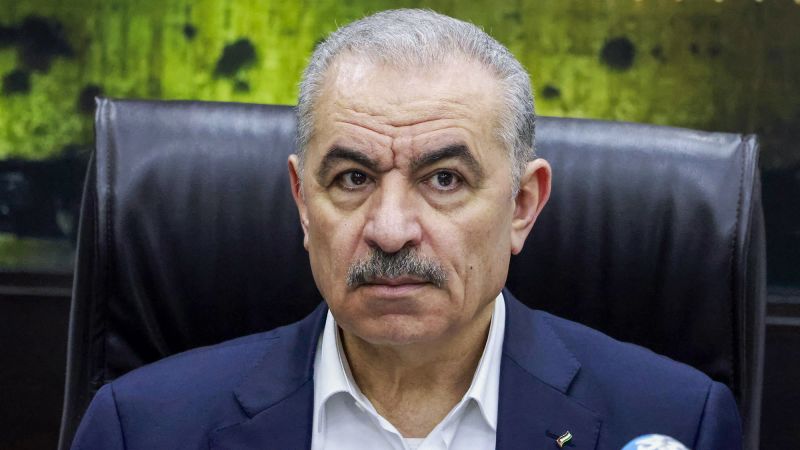The government of the Palestinian Authority led by Prime Minister Mohammad Shtayyeh resigned in an unexpected move that has sent shockwaves through the political landscape of the Middle-East. The resignation, which brought an abrupt end to a government that was just two years at the helm, has raised a slew of questions about the future of the Palestinian Authority and has left a fragile power vacuum in its wake.
Prime Minister Mohammad Shtayyeh had been serving as the prime minister since April 2019, following the resignation of his predecessor Rami Hamdallah. Prior to his role as prime minister, he had a long-standing career in public service in various capacities, making this resignation a noteworthy event in the political history of Palestine.
The reason for the sudden resignation remains shrouded in uncertainty and speculation. While there have been no formal statements regarding the cause, some suggest it could be due to internal tensions within the ruling Fatah party, while others speculate it could reflect larger geopolitical shifts in the region, amidst ongoing unrest and conflicts.
As a result of the resignation, President Abbas is now charged with the responsibility of selecting a new government — a formidable task given the current political climate. The new leadership will be tasked with navigating numerous challenges, including ongoing disputes with Israel, a struggling economy, mounting international pressure, and the overarching quest for Palestinian statehood.
The outgoing government, in its relatively short tenure, attempted to address many of these issues, particularly emphasizing economic growth and public sector reform. However, progress has been slow and many Palestinians have expressed dissatisfaction with the lack of change.
The resignation also presents an opportunity for new political players to emerge ahead of potential future elections. Palestinians across the West Bank, Gaza, and East Jerusalem await with trepidation and hope for the formation of a new leadership that could potentially bring about the much-needed change.
Despite the abrupt nature of the resignation, one thing is certain: the upcoming period of political transition will be of vital significance for the people of Palestine. It is sure to shape the future direction of the Palestinian Authority, as they grapple with the complex, multifaceted challenges that lie ahead.
The Palestinian Authority government’s resignation, while marking an end of an era under Prime Minister Mohammad Shtayyeh, also signifies the beginning of a significant juncture in Palestine’s political journey. A road steeped in uncertainty but also ripe with the potential for much-needed reform and renewal.
Overall, while the sudden resignation of the Palestinian Authority government came as a surprise, it is important to acknowledge that political transitions are an integral part of democratic processes. As the Palestinian Authority navigates through this potentially turbulent period, the global community watches keenly, bearing witness to the continued resilience and perseverance of the Palestinian people.




